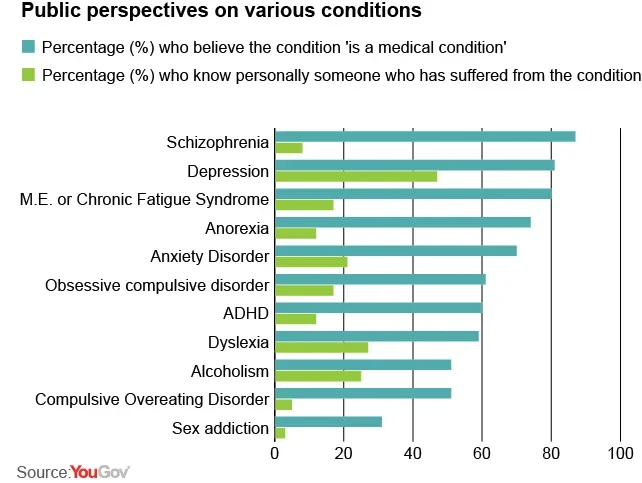Despite a controversial new book claiming the opposite, the majority of British adults think attention deficit hyperactivity disorder (ADHD) is a real medical condition
A paediatric neurologist has stirred controversy with claims made in his forthcoming book, ADHD Does Not Exist: The Truth About Attention Deficit and Hyperactivity Disorder. In the book, author Dr Richard Saul argues that ADHD is not a disease but a collection of symptoms that are caused by other, sometimes more serious conditions masked by the ‘ADHD’ label and often improperly treated with stimulants like Ritalin. The NHS fact page for ADHD defines it as ‘a group of behavioural symptoms’ and recommends a combination of ‘medication and therapy’ as treatment.
New YouGov research suggests that while relatively few people know personally someone with ADHD, the majority do consider it to be ‘a medical condition’.
60% of British adults consider ADHD to be a medical condition, comparable to the number who think the same about obsessive compulsive disorder (OCD; 61%) and dyslexia (59%), but a smaller proportion than think it about other afflictions listed such as depression (81%) or schizophrenia (87%).

Only about one in eight people (12%) know personally someone who has suffered ADHD. Among the conditions listed, depression is the most commonly encountered – nearly half of British people know someone who has suffered from depression.
Dr Saul’s book comes as recent papers have cast doubts on ‘the most influential study ever on ADHD’, which twenty years ago suggested that medications (like Ritalin) were a more effective long-term treatment for ADHD than behavioural therapy.
Image: Getty






